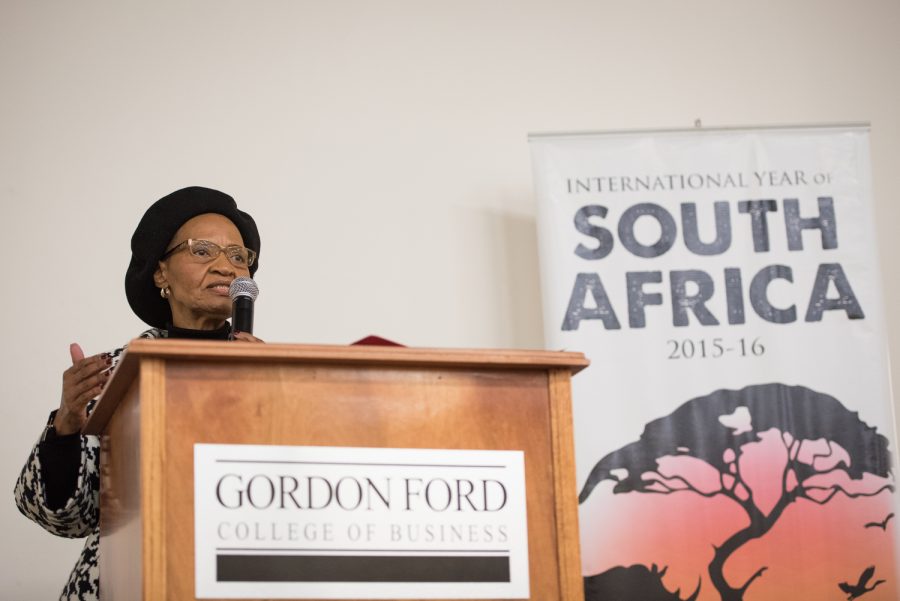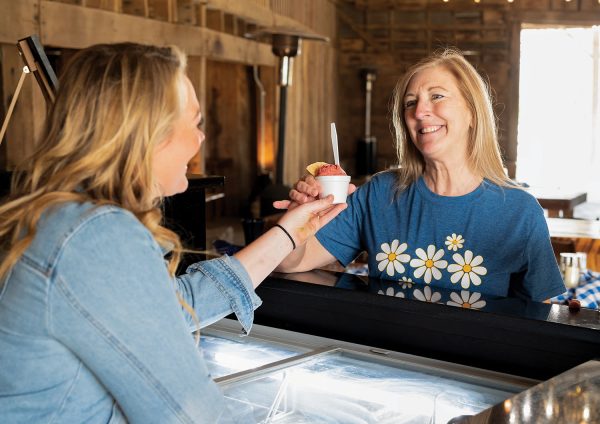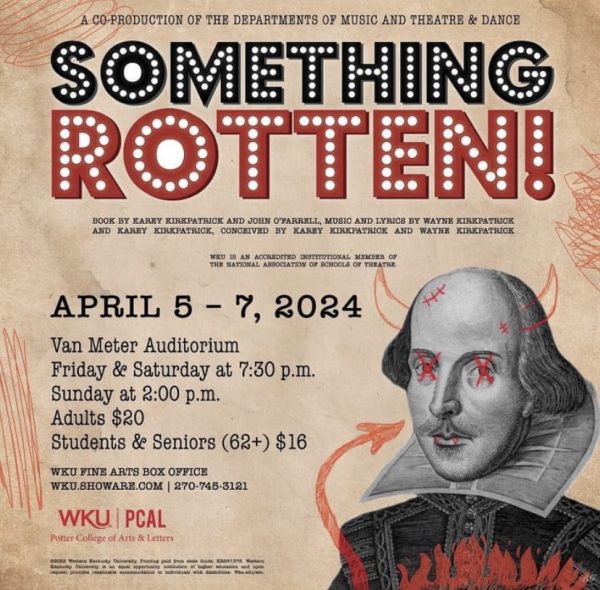South African embassy official speaks at Grise
February 12, 2016
Nowetu Luti, the Deputy Chief of Mission for the South African Embassy, spoke about the legacy of Nelson Mandela in Grise Auditorium on Wednesday, Feb. 10.
Her speech focused on the legacy that Mandela left behind, as well as how he affected the country and the generations to come. The event was part of WKU’s International Year of South Africa.
Michael McClellan, Diplomat-in-Residence and member of the committee for the International Year of South Africa, said Mandela was one of the great figures of non-violence and one of the things people take away from his life, besides his stance on nonviolent resistance, is looking at his method of reconciliation in apartheid in South Africa.
“The process of reconciliation that he led between blacks and whites and various groups who were involved in the fighting and so on, and the legacy that he leaves us is not only non- violent resistance but also reconciliation, forgiveness, coming together and unification of a divided society to rebuild a completely new society,” McClellan said.
McClellan said Luti lived through apartheid in South Africa, and that being able to hear from a native of the country about the legacy of Mandela is very different than hearing it from an American.
“I was touched when Ms. Luti talked about a man that spent 27 years in prison,” Mark Cambron, associate professor in engineering and member of the committee for the International Year of South Africa, said. “Nelson Mandela guided his nation toward democracy, peace and inclusion. It would have been easy for him to be angry and demand vengeance. Everyone should be inspired by his life and should want to learn more.”
The International Year Of program was created to help get students involved in their education outside of the country. Because not every student is available to travel, they decided to bring it to us, Cambron said.
“One the goals of the IYO program is to bring the world to WKU,” Cambron said. “In a perfect world every WKU student would travel the world as part of their education. Since this is not possible the IYO program wants every student to be exposed to world.”
McClellan hopes that the students can take what they learned today and use it in their everyday lives, especially with the upcoming elections.
“In today’s political climate in the United States, in our own presidential election going on, I think Mandela’s example has a lot to teach us about reconciliation, coming together, working together to advance the good of the nation, the good of the people,” said McClellan.












![Students cheer for Senator at Large Jaden Marshall after being announced as the Intercultural Student Engagement Center Senator for the 24th Senate on Wednesday, April 17 in the Senate Chamber in DSU. Ive done everything in my power, Ive said it 100 times, to be for the students, Marshall said. So, not only to win, but to hear that reaction for me by the other students is just something that shows people actually care about me [and] really support me.](https://wkuherald.com/wp-content/uploads/2024/04/jadenmarshall-1200x844.jpg)






![Megan Inman of Tennessee cries after embracing Drag performer and transgender advocate Jasmine St. James at the 9th Annual WKU Housing and Residence Life Drag Show at Knicely Conference Center on April 4, 2024. “[The community] was so warm and welcoming when I came out, if it wasn’t for the queens I wouldn’t be here,” Inman said.](https://wkuherald.com/wp-content/uploads/2024/04/smith_von_drag_3-600x419.jpg)






